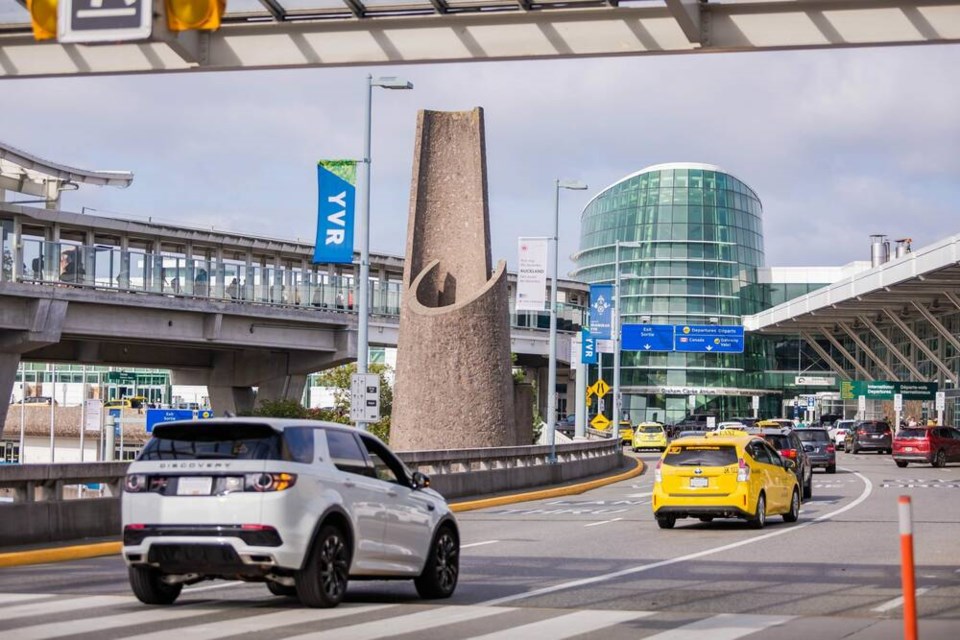To better serve the thousands of passengers at the Â鶹´«Ã½Ó³»International Airport (YVR), a trio of British Columbia Institute of Technology (BCIT) students has collaborated with the airport to develop an artificial intelligence (AI) model to predict transportation demand.
The system could help identify the number of taxis and carshares required at YVR every hour, reducing taxi wait times and make passenger movement at the airport more efficient.
The AI model developed by BCIT business information technology management (BITMAN) students Stuart Barnes, Yuri Fedoruk, and Will Karapetyan is said to help support the airport’s Net Zero Carbon 2030 goals by providing insights into idling time of vehicles and promoting more efficient vehicle movement.
As a major hub, YVR needed data about its transportation demand to better manage traffic throughout the airport, a BCIT news release states.
After exploring historical data about taxi use, the students, through the Centre for Internet of Things (IoT), developed an AI model by analyzing data gathered from the number of incoming flights alongside the number of taxis entering YVR every hour.
To better serve the thousands of passengers at the Â鶹´«Ã½Ó³»International Airport (YVR), a trio of British Columbia Institute of Technology (BCIT) students has collaborated with the airport to develop an artificial intelligence (AI) model to predict transportation demand.
The system could help identify the number of taxis and carshares required at YVR every hour, reducing taxi wait times and make passenger movement at the airport more efficient.
The AI model developed by BCIT business information technology management (BITMAN) students Stuart Barnes, Yuri Fedoruk, and Will Karapetyan is said to help support the airport’s Net Zero Carbon 2030 goals by providing insights into idling time of vehicles and promoting more efficient vehicle movement.
As a major hub, YVR needed data about its transportation demand to better manage traffic throughout the airport, a BCIT news release states.
The students, through the Centre for Internet of Things (IoT), developed an AI model by analyzing data gathered from the number of incoming flights alongside the number of taxis entering YVR every hour.
“We are able to take a real-world problem and present a solution both on the advisory level, and the technical, functional, and implementation levels," Karapetyan said. "The ability to see a direct impact on a sizable multilevel organization was startling.”
Noting the growing importance of AI and data in the labour market, and with the support of faculty member Amy Goldlist, the students pitched their final AI model to YVR.
Andrew Grams, director of parking and ground transportation at Â鶹´«Ã½Ó³»Airport Authority said, “YVR’s partnership with BCIT has allowed us to welcome more innovators, thinkers and contributors to our operation.”
He added, “BCIT students are demonstrating how innovative thinking can be taken beyond the classroom and applied to real challenges faced by industry.”




